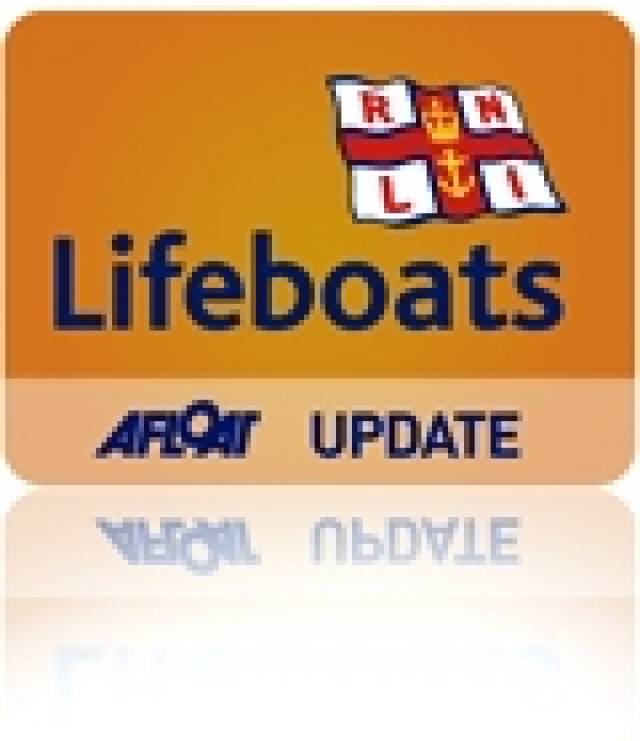#RNLI - Volunteer crew members at Clifden RNLI in Co Galway responded to three callouts in four days at the weekend.
The busy period from Friday 17 to Monday 20 April involved the crew responding to three incidents including a medical evacuation off Inishbofin, a launch to assist three people in difficulty off Inishlacken Island, and a search involving all three of Clifden’s lifeboats for two missing kayakers near Ballyconneely.
The crew was first paged at 4.41pm on Friday following a request to carry out a medical evacuation on Inishbofin.
Clifden RNLI’s Atlantic 85 inshore and all-weather Mersey class lifeboats were launched to the scene along with the Irish Coast Guard’s Rescue 118 helicopter from Sligo.
The inshore lifeboat with three crew members was dispatched first to assist the island nurse if required. The all-weather lifeboat followed as back-up.
Once on scene, the crew observed that the casualty had been taken care of and was medically evacuated from the island by the helicopter.
On Sunday night, the pagers sounded again shortly after 9pm, as the coastguard requested a launch following a report from a member of the public that three people were in difficulty in the water off Inishlacken Island.
The D class lifeboat was taken by Land Rover and launched from Roundstone while the all-weather lifeboat was put to sea from Clifden.
Three people had been watching a basking shark when their dinghy was overturned by a breaking wave. They had successfully managed to swim to the shore when they were spotted by the coastguard helicopter and were found to be safe and well when located by the lifeboat crew.
The final callout came on Monday at 10.20pm and required the involvement of all three of Clifden’s lifeboats.
Both the inshore B and D class lifeboats and the all-weather Mersey class lifeboat were launched at the request of the coastguard following a report that two kayakers were seen leaving a beach near Ballyconneely but had not returned.
The alarm was raised by a member of the public who spotted two people leave Aillebrack beach and put to sea at approximately 2pm that afternoon. However, when darkness fell and with the cars still on the beach, the caller became concerned.
All three RNLI lifeboats from Clifden were launched along with Rescue 118 and the Cleggan Coast Guard Unit. Clifden RNLI’s all-weather lifeboat was appointed on scene commander and began a search offshore while the B and D class lifeboats searched inshore near Slyne Head.
RNLI crew members who were assisting in the search from the shore located the two casualties safe and well at Dunloughan Beach.
Speaking following the busy period for the station, Clifden lifeboat operations manager John Brittain said: "Firstly, I would like to thank the members of the public who raised the alarm on two occasions here as their vigilance was very important in leading to successful outcomes.
"I would also like to thank our own volunteers who despite a busy weekend, responded promptly and professionally throughout.
"We would encourage anyone taking to the water to enjoy themselves but be mindful of the importance of informing the coastguard of their planned passage and destination, and the expected time of their return."
































































